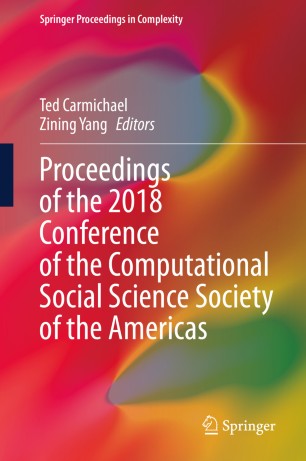

Most ebook files are in PDF format, so you can easily read them using various software such as Foxit Reader or directly on the Google Chrome browser.
Some ebook files are released by publishers in other formats such as .awz, .mobi, .epub, .fb2, etc. You may need to install specific software to read these formats on mobile/PC, such as Calibre.
Please read the tutorial at this link: https://ebookbell.com/faq
We offer FREE conversion to the popular formats you request; however, this may take some time. Therefore, right after payment, please email us, and we will try to provide the service as quickly as possible.
For some exceptional file formats or broken links (if any), please refrain from opening any disputes. Instead, email us first, and we will try to assist within a maximum of 6 hours.
EbookBell Team

4.0
56 reviewsThis book contains a selection of the latest research in the field of Computational Social Science (CSS) methods, uses, and results, as presented at the 2018 annual conference of the CSSSA. This conference was held in Santa Fe, New Mexico, October 25 – 28, 2018, at the Drury Plaza Hotel.
CSS investigates social and behavioral dynamics in both nature and society, through computer simulation, network analysis, and the science of complex systems. The Computational Social Science Society of the Americas (CSSSA) is a professional society that aims to advance the field of CSS in all its areas, from fundamental principles to real-world applications, by holding conferences and workshops, promoting standards of scientific excellence in research and teaching, and publishing novel research findings.
What follows is a diverse representation of new approaches and research findings, using the tools of CSS and Agent-Based Modeling (ABM) in exploring complex phenomena across many different domains. Readers will not only have the methods and results of these specific projects on which to build, but will also gain a greater appreciation for the broad scope of CSS, and have a wealth of case-study examples that can serve as meaningful exemplars for new research projects and activities. This book, we hope, will appeal to any researchers and students working in the social sciences, broadly defined, who aim to better understand and apply the concepts of Complex Adaptive Systems to their work.